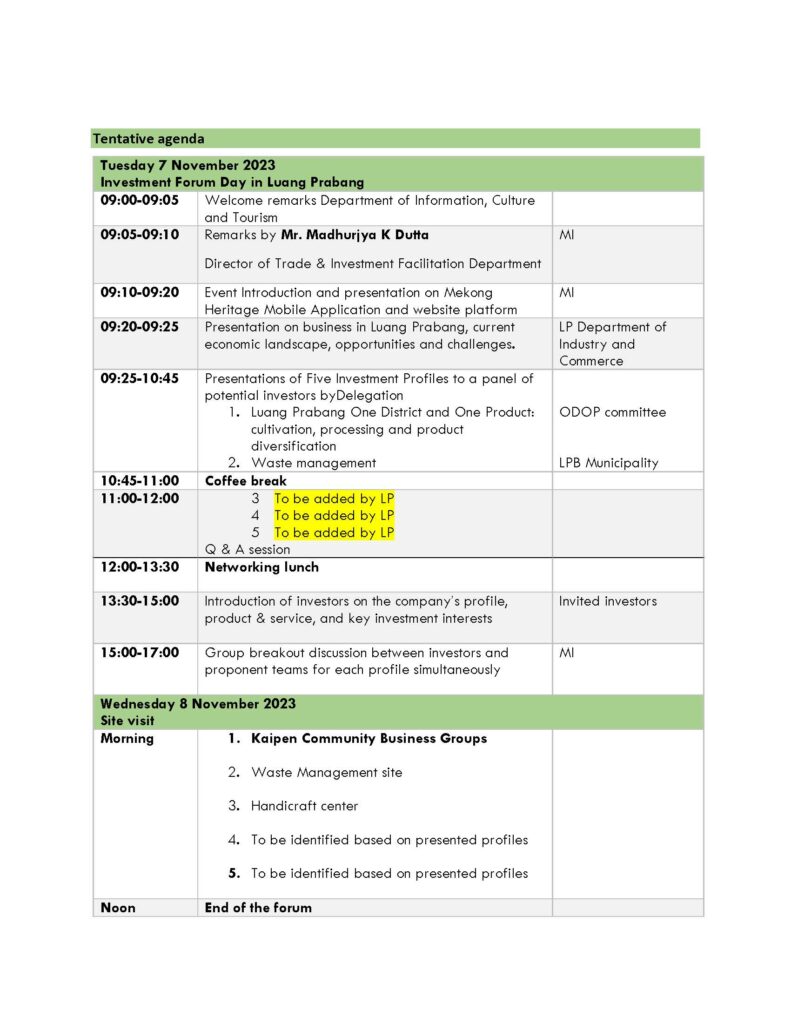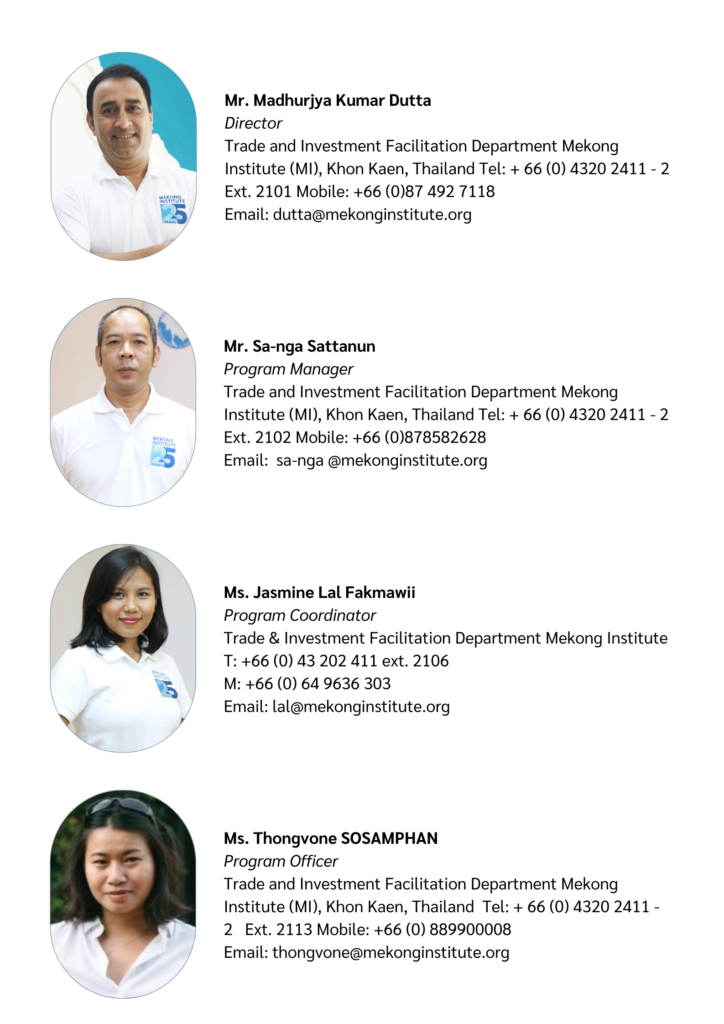
Mekong Institute (MI), with the support of the Mekong-Republic of Korea Cooperation Fund (MKCF), is currently implementing “Sustainable and Smart Tourism Development in the Mekong Region”. The project is designed to introduce smart tourism tools, techniques, and technologies through learning exchanges, structured learning visits, information-sharing, and adoption of best practices. Such investments are geared to expand small entrepreneurial businesses and deepen cultural interconnectedness and appreciation among and between cities of the Republic of Korea and the Mekong region countries.
More specially, the project aims to create “smart cities” to strengthen the five Mekong countries’ capacities in meeting the fast-rising and highly competitive tourism inbound market through collaboration and working closely with National Tourism Organizations, tourism associations, technical partners, and local destination management companies of Cambodia, Lao PDR, Myanmar, Thailand and Vietnam.
As part of the project, a digital tangible infrastructure on Mekong Heritage Mobile Application is developed that can support a new data model of smart tourism and stimulate innovative entrepreneurial spirit among local tourist providers. It aims to provide comprehensive information on the key attractions, tourism services, and products of the five UNESCO heritage sites located in Mekong countries, namely Ayutthaya (Thailand), Siem Reap (Cambodia), Luang Prabang (Lao PDR), Hue (Vietnam), and Bagan (Myanmar). By utilizing the app, users can gain insights into the diverse heritage sites, explore their historical significance, and discover the fascinating stories behind them.
To further support the selected heritage sites located in Mekong countries in approaching investment opportunities, widening business linkages, and fostering partnerships with prospective investors that prioritize technology transfer and skill development for mutual advantage for further extended engagement, with the goal of driving economic growth while promoting smart and sustainable tourism in the heritage towns of Mekong countries.
Mekong Institute (MI) hosts a series of investment forums across Mekong countries, bringing together potential local and regional investment partners. This forum consists of two phases, with the first phase having commenced in Thailand on October 2, 2023, and in Myanmar on October 4, 2023. The second phase will continue with events in Lao PDR, Cambodia, and Vietnam. Notably, the forum in Lao PDR is scheduled for November 7, 2023, and will take place in the picturesque city of Luang Prabang.

Luang Prabang, once the capital of Laos, has a rich historical and cultural heritage. One of the most significant aspects of Luang Prabang is its well-preserved architecture and urban layout, which reflect its history as a traditional Southeast Asian city. The city’s layout and buildings showcase the cultural blending of Lao, French, and other Southeast Asian architectural styles, and the city was recognized as a UNESCO World Heritage Site in 1995 for its outstanding cultural and historical value.
The city situated approximately 300 kilometers north of the capital city, has emerged as a highly sought-after destination as tourism in Laos makes a remarkable post-Covid comeback. Of all tourists returning to the country, more than 85% heading to northern Laos’ Luang Prabang province using the China-Laos Railway that came to operation in December 2021. The introduction of an online ticket-purchasing application has significantly streamlined the process for train travelers, allowing them to efficiently plan and book their tickets in advance.
In the first quarter of 2023 alone, the province recorded about 273,000 visitors, resulting in revenue exceeding 157 million U.S. dollars. Furthermore, since April of the current year, the operation of a cross-border train connecting Laos and China has opened up new horizons, attracting a growing number of Chinese tourists. Notably, some tourists, including those from Thailand, visit specifically to experience riding the high-speed train, a monumental project aligned with the One Belt, One Road initiative.
The specific objectives of the investment forum are:
- To provide a platform for Luang Prabang authorities and local stakeholders to present the needs and opportunities at Heritage Luang Prabang town and for investors to present their products/services and interest areas.
- To create connections for further engagement between stakeholders, fostering deeper understanding and collaboration for sustainable investments.
- To present the Mekong Heritage Mobile Application to stakeholders for further utilization.
- To explore the sites for potential investment locations, allowing investors to gain first-hand experience of the regions and their potential.
By the end of November, five investment forums will be held across the Mekong Heritage Provinces. The investment forums are expected to lay a solid foundation for propelling sustainable and smart tourism development through strategic collaborations with both Korean and local investors. These crucial partnerships are poised to drive economic growth, foster environmental stewardship, and uplift local communities in the region.
The Forum will bring a group of 30 individuals, comprising investors from Korea, the regional and in the country to discuss with local authorities of Luang Prabang in perusing to start and sustain the heritage town. Key local stakeholders will include, but not be limited to, representatives from local tourism authorities and associations, ecotourism and community-based tour operators, and advocates of sustainable tourism.
To download the agenda, click here.




